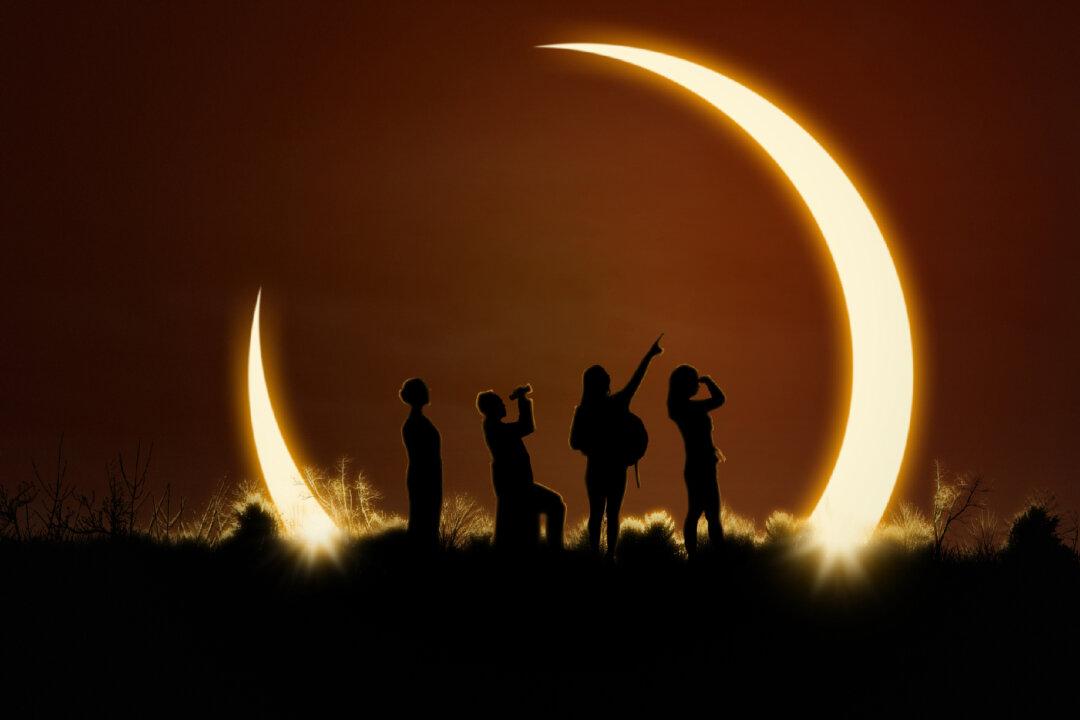People in ancient China believed that an eclipse occurred because a dragon ate the sun. For the Tewa Pueblo Native Americans, who resided in present-day New Mexico when early Spanish conquistadors arrived there, an eclipse meant that the sun temporarily left the sky to visit its home in the underworld.
While scientists today offer another explanation for what occurs when the moon completely covers the face of the nearest star to Earth, the phenomenon continues to interest and intrigue people. That will be true when the moon moves between the Earth and the sun on April 8 this year. A shadow will cross our planet’s surface, and people located in this band will experience a total solar eclipse as day is temporarily turned into night.





